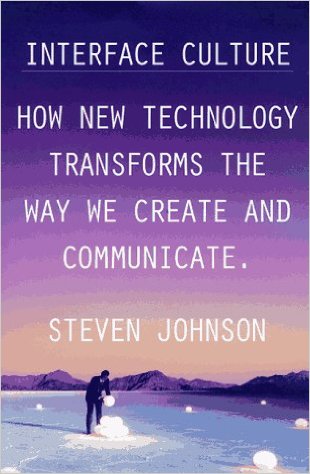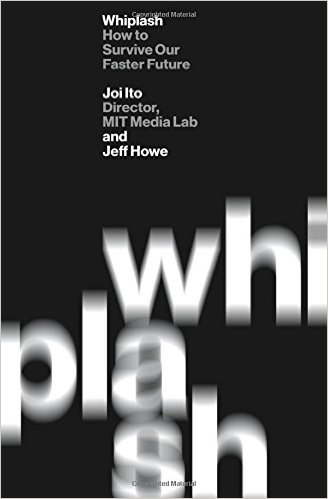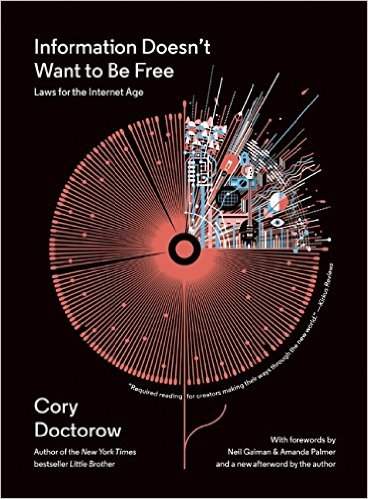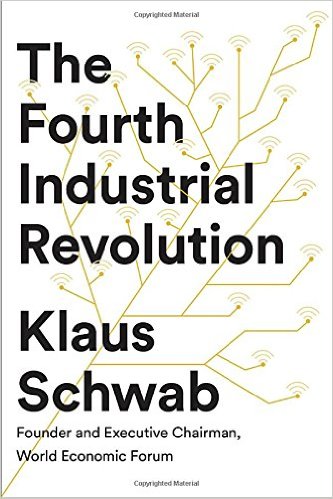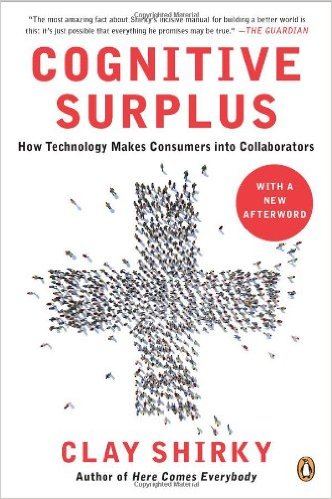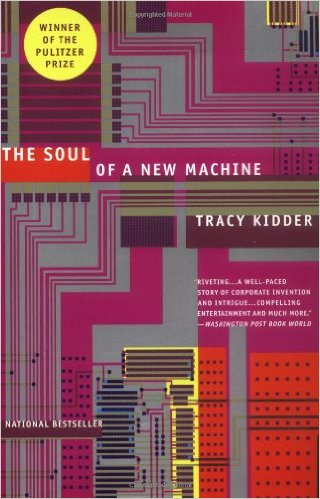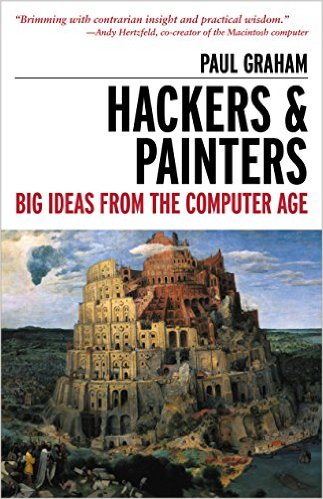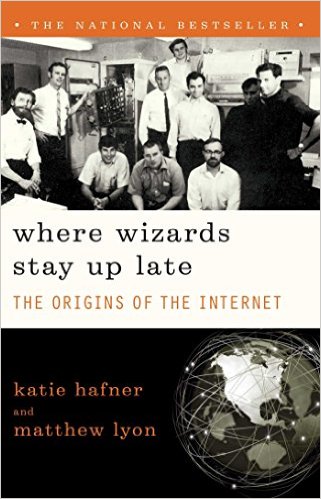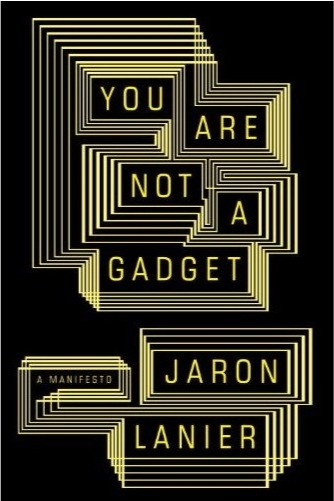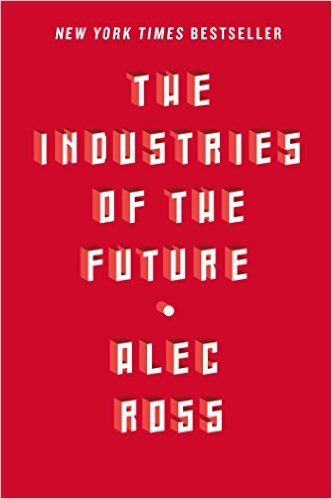
10 Books That Will Transform How You Think About the Future
Nothing has captured human attention — and imagination — as wholly as the internet. The internet is the focus and genesis of some of the world’s best writing, from the incredible Steven Levy-edited Backchannel to Paul Graham’s seminal missives about startup culture to Ben Thompson’s masterful analysis on Stratchery. The internet is such rich fodder for new ideas and cultural commentary because when we talk about the internet, we’re actually talking about our collective future (or what we imagine it to be).
For better or worse, we use the internet as a metaphor for our shared consciousness. In his fantastic essay What We Talk About When We Talk About the Internet, Willie Osterweil writes, “The computer is the liar that always tells the truth. If you believe the lie—that what the computer does is beyond human comprehension, that its power exceeds its use value—then you are doomed to be its slave.”
The following 10 books confront the power of the internet, and all we project onto it. Consider this your don’t-be your-computer’s-slave reading list.
Interface Culture: How New Technology Transforms the Way We Create and Communicateis a harbinger of social networks, a prescient glimpse into a possible future that came true. “Interfaces,” Johnson writes, “are stories we tell ourselves to ward off senselessness, memory palaces built out of silicon and light.” (See? Pure poetry). Johnson’s thesis is that technology has forever changed (and is forever changing) the stories we tell ourselves and how we tell them. In the two decades since Interface Culture was first published, this prophecy has come truer with each passing year.
Whiplash: How to Survive Our Faster Future“The most profound change ushered in by the digital revolution will not involve bells and whistles or new programming tricks. The most profound change will lie with our generic expectations about the interface itself. We will come to think of interface design as a kind of art form — perhaps the art form of the next century. And with that broader shift will come hundreds of corollary effects, effects that trickle down into a broad cross section of everyday life, altering our storytelling appetites, our sense of physical space, our taste in music, the design of our cities.”
Whiplash is a postcard from the future “targeted squarely at anyone with a lively curiosity.” Written by visionary futurist (and MIT Media Lab Director) Joi Ito and Jeff Howe, Whiplash is an optimistic, actionable guide for navigating technological innovation without abandoning our humanity. “It’s a book about what you don’t know you don’t know,” the authors write in the introduction, “and why it’s important to question these problematic assumptions.”
Information Doesn’t Want to Be Free: Laws for the Internet Age“We imagine we’ll hear history when it calls. When it doesn’t, we return to our daily lives, our moral mettle still intact. But maybe history doesn’t call, or maybe you have to be listening closely to hear it. To prioritize diversity over perceived merit—the color blind assessment of ability that has never really been color blind at all—is to recognize that strategic imperatives can’t be the sole benchmark by which we distribute society’s prizes. There’s an increasing sense—among the millennials who fill our lecture halls, but out in the rougher world of cubicles and delivery vans and hospital waiting rooms as well—that it’s not enough to be right, or profitable, or talented. You must also be just.”
Penned by science-fiction novelist and tech journalist Cory Doctorow, Information Doesn’t Want to Be Free: Laws for the Internet Age is a book about copyright, the internet, and earning a living as a creator in a digital world. Part handbook, part cultural critique, Information Doesn’t Want to Be Free challenges how we think about creation, ownership, and how we discover new information. In Doctorow’s words, “The right information in the right place changes your life,” but only so long as you have access to it — which is a mighty and telling caveat. Read the entire first chapter over on TechCrunch.
The Fourth Industrial Revolution“Industries that make widespread use of digital locks see market power shifting from creators and investors to intermediaries. They don’t reduce piracy. And customers who run into frustrations with digital locks are given an incentive to learn how to rip off the whole supply chain.”
Klaus Schwab knows a thing or two about economics. The founder and chairman of the World Economic Forum has not one but three graduate degrees, including doctorates in economics and engineering, as well as a Master in Public Administration from the Kennedy School of Government at Harvard University. So it goes without saying that Schwab is perhaps the person most qualified to author The Fourth Industrial Revolution, an essential framework for thinking about how we can shape technology to secure a future aligned with our deepest human values.
Cognitive Surplus: How Technology Makes Consumers Into Creators“We are not constrained by a binary choice between ‘accept and live with it’ and ‘reject and live without it.’ Instead, take dramatic technological change as an invitation to reflect about who we are and how we see the world. The more we think about how to harness the technology revolution, the more we will examine ourselves and the underlying social models that these technologies embody and enable, and the more we will have an opportunity to shape the revolution in a manner that improves the state of the world.”
Before there was Malcolm Gladwell, there was Clay Shirky, who has written and been interviewed about the Internet since 1996. Cognitive Surplus: How Technology Makes Consumers Into Creators is a follow up to Shirky’s bestselling book about the history (and future) of crowdsourcing, Here Comes Everybody — and Cognitive Surplus is arguably a denser, richer, and toothier book than its predecessor. The book’s title refers to the free time that individuals have to engage with collaborative activities on the internet. “When we use a network,” Shirky writes, “the most important asset we get is access to one another.” The internet, Shirky argues, is made infinitely more valuable by people — and that by combining technology and group dynamics, a powerful societal alchemy emerges.
The Soul of a New Machine“Theories of generational difference make sense if they are expressed as theories of environmental difference rather than of psychological difference. People, especially young people, will respond to incentives because they have much to gain and little to lose from experimentation. To understand why people are spending so much time and energy exploring new forms of connection, you have to overcome the fundamental attribution error and extend to other people the set of explanations that you use to describe your own behavior: you respond to new opportunities, and so does everybody else, and these changes feed on one another, amplifying some kinds of behavior and damping others.”
Published in 1981, The Soul of a New Machine is the oldest book on this list, and serves as a powerful origin story for startup culture — so powerful it won both the Pulitzer Prize and the American Book Award. Published when mini-supercomputers were still the stuff of science fiction, The Soul of a New Machine chronicles one company’s efforts to bring a mini-supercomputer to market, tracing the history of Silicon Valley back to its roots. Kidder does a masterful job capturing the then-emergent spirit of hacker culture at the very point of inflection.
Hackers and Painters: Big Ideas From the Computer Age“‘I think I wanted to see how complicated things happen,’ West said years later. ‘There’s some notion of control, it seems to me, that you can derive in a world full of confusion if you at least understand how things get put together. Even if you can’t understand every little part, how infernal machines get put together.’”
Paul Graham is Silicon Valley’s preeminent essayist, the (male) Joan Didion of the tech world, penning long pieces on everything from Post-Medium Publishing to The Hardware Renaissance. Hackers and Painters: Big Ideas From the Computer Age is a welcome, rare anthology of some of Graham’s earliest writing, and is chock full of classic Grahamisms, including: “Start by picking a hard problem, and then at every decision point take the harder choice.” Topics covered include the importance of beauty in software design, how to make wealth, heresy and free speech, the programming language renaissance, the open-source movement, digital design, internet startups, and more.
Where Wizards Stay Up At Night: The Origins of The Internet“The computer world is like an intellectual Wild West, in which you can shoot anyone you wish with your ideas, if you’re willing to risk the consequences. “
In the 1960’s, when computers were considered giant calculators, and relegated primarily to works of science fiction, J.C.R. Licklider at MIT saw them as the future of communication. Where Wizards Stay Up At Night: The Origins of The Internet is the story of ARPANET, an early packet switching network and the first network to implement the protocol suite TCP/IP. Moreso, this is the story of how the internet was invented by a motley crew of cantankerous, daring, and determined programmers. TL;DR: Not much has changed.
You Are Not a Gadget: A Manifesto“At its core, all engineering comes down to making tradeoffs between the perfect and the workable.”
Jaron Lanier is not a man for small talk. In You Are Not a Gadget: A Manifesto, the lauded computer scientist confronts an existential question: “What if only humans are real, and information is not?” The resulting 240 pages are Lanier’s argument that, in his words, “technologies are extensions of ourselves,” not the other way around. But humanity remains too reactive to technology, Lanier argues. “Our identities can be shifted by the quirks of gadgets,” writes Lanier. “When people are told that a computer is intelligent, they become prone to changing themselves in order to make the computer appear to work better, instead of demanding that the computer be changed to become more useful.”
Read Jaron’s extended conversation with his editor about how technology has transformed our lives and shaped our identities here.
The Industries of the Future“Stanford University researcher Jeremy Bailenson has demonstrated that changing the height of one’s avatar in immersive virtual reality transforms self-esteem and social self-perception. Technologies are extensions of ourselves, and, like the avatars in Jeremy’s lab, our identities can be shifted by the quirks of gadgets. It is impossible to work with information technology without also engaging in social engineering.”
During his tenure as Senior Advisor for Innovation to the Secretary of State, Alec Ross visited forty-one countries, all in an attempt to explore and document the latest advances coming out of every country and continent. His findings became The Industries of the Future, a groundbreaking analysis of the industries and forces that will transform our societies in the next 20 years. Spoiler alert: Yes, the robots are coming (but not where you’d think).
“Serendipity fades with everything we hand over to algorithms. Most of these algorithms are noiseless. They gently guide us in our choices. But we don’t know why we are being guided in certain directions or how these algorithms work. And because they constitute the value of a company’s intellectual property, there is an incentive to keep them opaque to us.”

